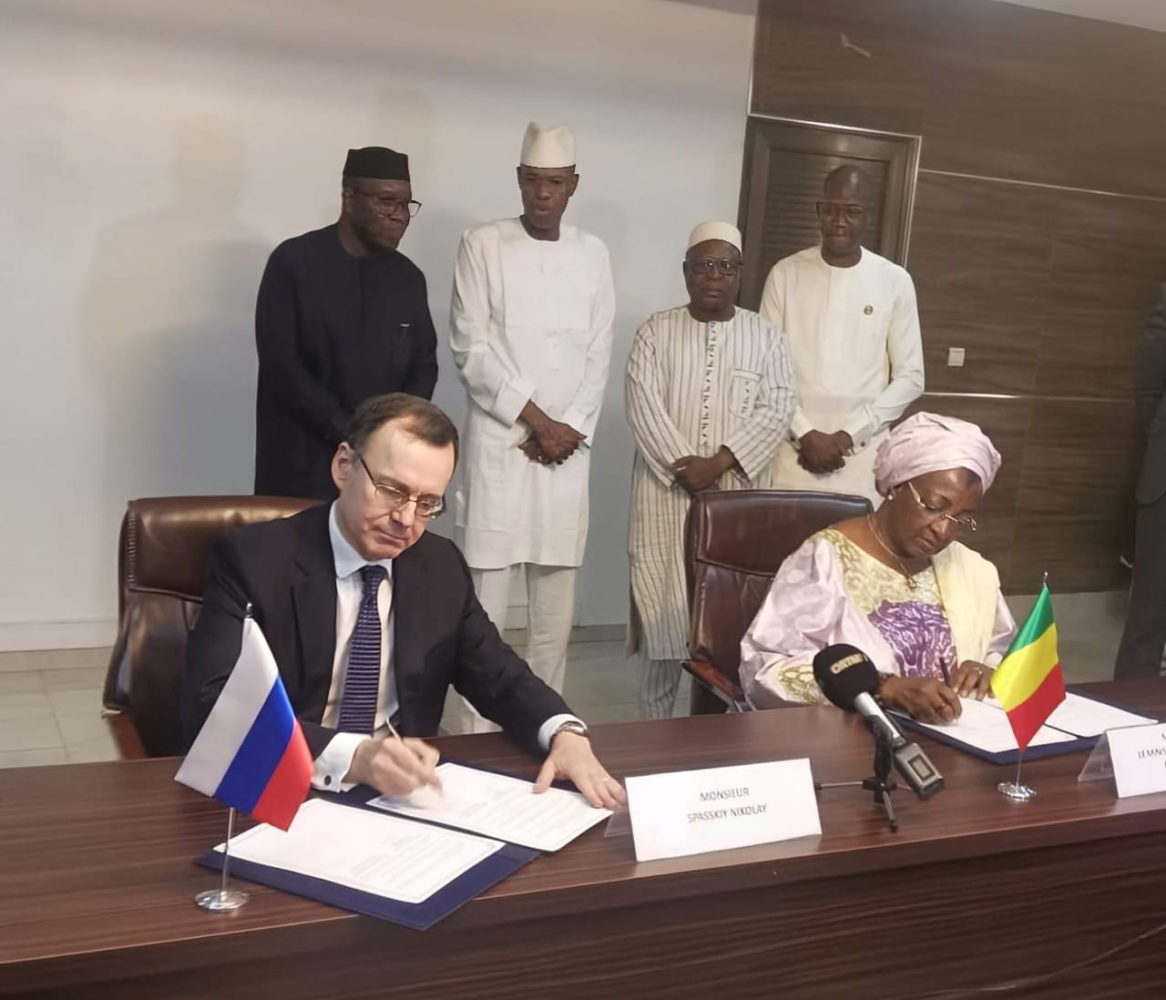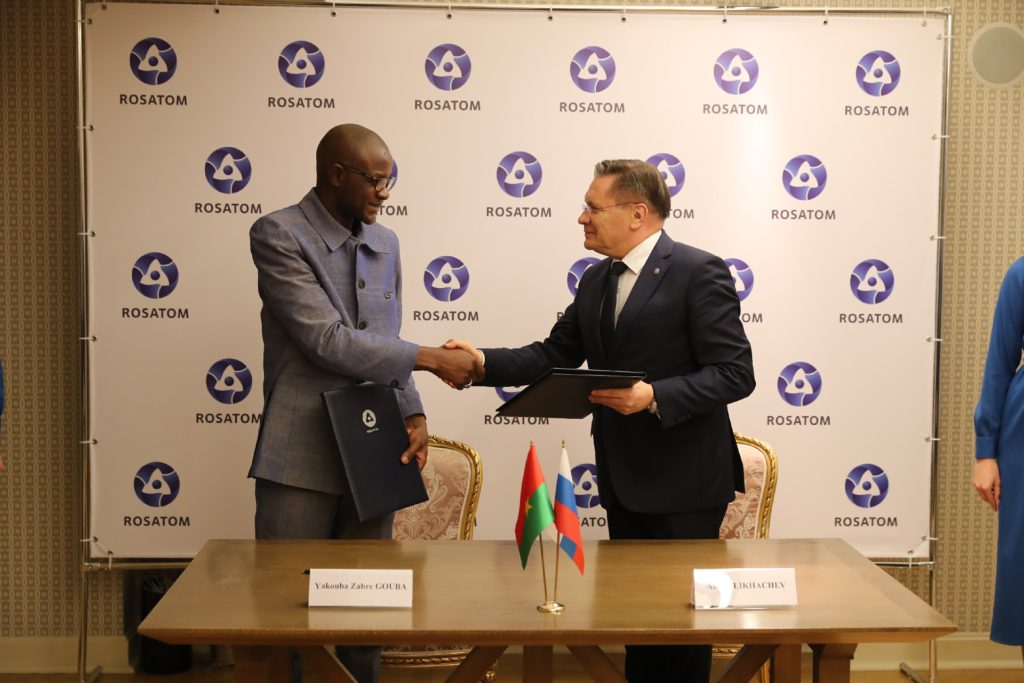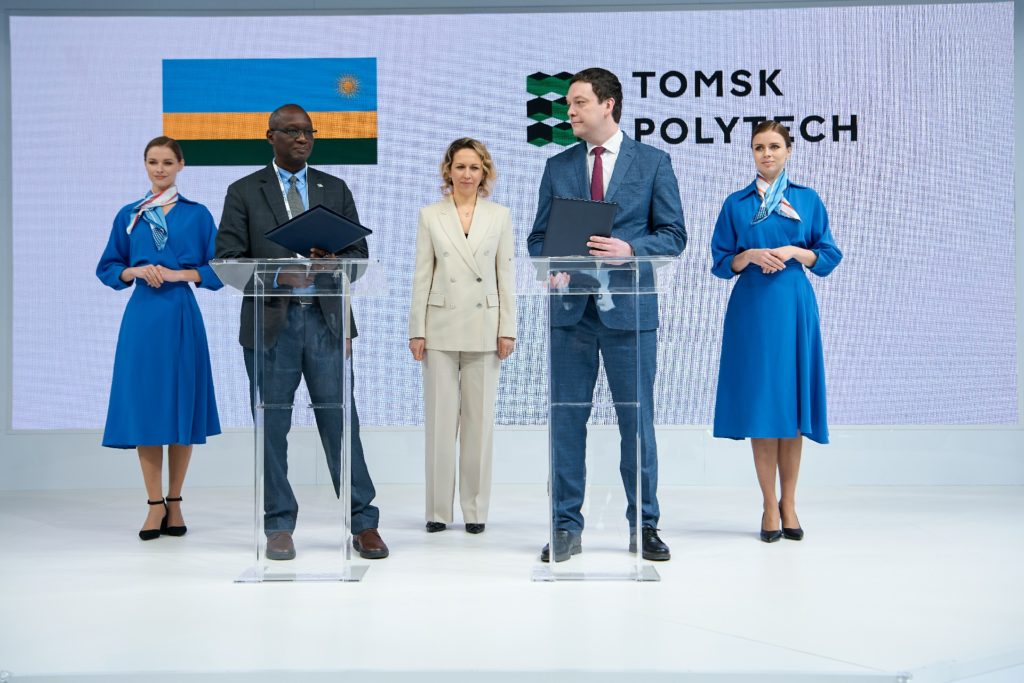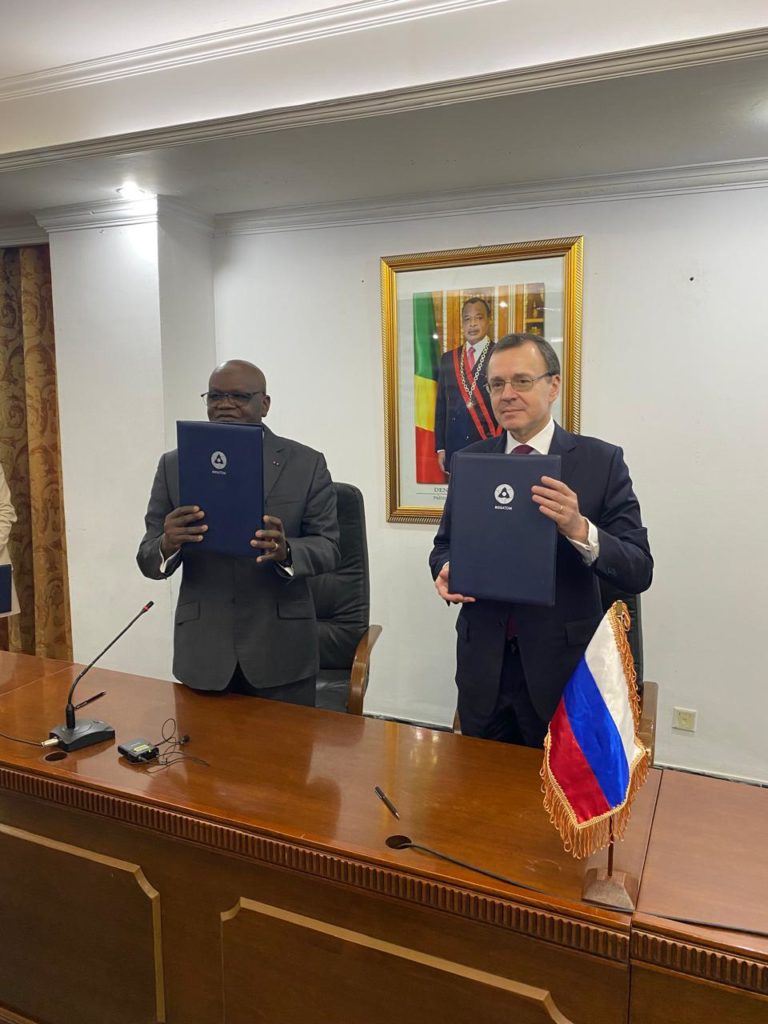
No Go Without Nuclear
back to contentsAs estimated by international experts, the population of the African continent will double by 2060: over 25 % of the global population, or more than 2.8 billion people, will live in Africa. Energy development is one of the toughest challenges the continent is facing. Rosatom offers its African partners reliable high-tech solutions to this challenge.
With a number of far-reaching documents signed, bilateral talks held and visits made, the Russian nuclear corporation continues to expand and strengthen its cooperation with African countries in 2024. Here is our recollection of the key events from the current and previous years.
Mali
2024: in early July, a delegation from Rosatom visited Mali and held a meeting with Assimi Goïta, the head of Mali’s transitional government. Negotiations were also held with a ministerial delegation led by the country’s Minister of Economy and Finance Alousséni Sanou. The parties discussed, among other things, solar generation and geological exploration projects, and strategic plans to build a Russian-designed SMR nuclear power plant in Mali.
Following the talks, Rosatom signed two memorandums of cooperation in developing nuclear infrastructure and building positive awareness of nuclear energy with Malian Energy and Water Resources Minister Bintou Camara, and another memorandum of cooperation in personnel training with Minister of Higher Education and Scientific Research Bouréma Kansaye.
In April, Rosatom Director General Alexey Likhachev and Energy Minister Bintou Camara met at the Atomexpo 2024 international forum to sign a roadmap for establishing a dialog in peaceful uses of nuclear energy. After the parties set up a legal framework for the cooperation in this field, they will consider the possibility of implementing nuclear power projects and using radiation technologies in agriculture and medicine in Mali.
Burkina Faso
2024: in June, Alexey Likhachev and Burkina Faso Minister of Energy, Mines and Quarries Yacouba Zabré Gouba signed three memorandums on the sidelines of the Saint Petersburg International Economic Forum (SPIEF 2024). The first of them pertains to the training of staff for the nuclear power sector. The parties will develop ties between specialized educational institutions, organize short-term training courses and upskilling programs for teachers, publish educational and academic literature, and exchange students. The purpose of these arrangements is to train personnel for the yet-to-emerge nuclear industry in Burkina Faso.

The second memorandum aims to assess and develop nuclear infrastructure in the country. This is planned to be done in compliance with the IAEA guidelines and Rosatom’s best practices. The third document is intended to promote a positive public attitude to nuclear power and raise public awareness among the people of Burkina Faso on the advantages of nuclear technology, including non-power nuclear solutions.
In April, at Atomexpo 2024, Alexey Likhachev and Yacouba Zabré Gouba signed a roadmap for establishing a dialog in peaceful uses of nuclear energy.
2023: the parties signed a framework memorandum of understanding and cooperation in civil nuclear power technology.
Rwanda
2024: in April, the Tomsk Polytechnic University (TPU, one of Rosatom’s backbone universities) and the Rwanda Atomic Energy Board signed a memorandum of understanding at the Atomexpo 2024 international forum. The parties agreed to develop cooperation in education, training and research in nuclear physics and other areas. Their efforts will be primarily concentrated on joint educational programs, offering the students from Rwandan universities undergraduate, graduate and postgraduate programs at TPU, and organizing internships for them.

2019: Rosatom and Rwanda signed an agreement to build a nuclear science and technology center, a memorandum of understanding on the training of human resources, and a memorandum of understanding on public acceptability.
2018: the parties signed a framework memorandum of understanding and an intergovernmental agreement on cooperation in peaceful uses of nuclear energy.
Congo
2024: in mid-July, Nikolai Spassky, Deputy Director General for International Relations at Rosatom, held talks with Emile Ousso, Minister of Energy and Water Resources, during his visit to the Republic of Congo. The talks resulted in the signing of memorandums of cooperation in peaceful uses of nuclear energy and in hydro power.
Nikolai Spassky also met with Prime Minister Anatole Collinet Makosso to discuss the prospects for consistent expansion of the Russian-Congolese partnership in the energy sector.
2020: Rosatom and Congo signed two memorandums of cooperation in training human resources for Congo’s nuclear power industry and in building positive awareness of nuclear energy in the country.
2019: an intergovernmental agreement on cooperation in peaceful uses of nuclear energy was signed during an official visit of Congolese President Denis Sassou Nguesso to Moscow.

2018: a memorandum of understanding and cooperation in peaceful uses of nuclear power was signed.
Guinea
2024: in June, Rosatom’s power engineering division and its partners from the Republic of Guinea signed on the sidelines of SPIEF 2024 a memorandum of intent to build floating power units to supply electricity to the country. The parties will consider the possibility of using offshore generation facilities with field-proven and efficient RITM 200 reactors, and set out the terms and conditions of the project.
Other African countries are also among Rosatom’s partners. For example, intergovernmental agreements on cooperation in peaceful uses of nuclear energy were signed with Zimbabwe and Burundi in 2023. Rosatom also maintains contacts with Ghana, Nigeria, Zambia, Angola, Namibia, South Africa, Tanzania, Kenya, Ethiopia, Uganda and Zambia.
Sergey Rozhenko, Power & Utilities team lead at Kept
Electrification and industrialization of Eastern and Southern Africa is a truly massive task, commensurate in scope with the construction of five Russia-size power systems in just 30–40 years. Such a task can be accomplished only with a combination of all types of energy resources, including fossil fuels, renewable and nuclear. According to Kept’s estimates, nuclear generation can play an outstanding role in the development of the regional energy sector and economy. By 2060, nuclear might account for a fifth of the energy mix of Eastern and Southern Africa, with installed nuclear capacity standing at above 125 GW. This can be achieved by the construction of 80 large nuclear reactors and more than 300 small and medium reactors. In addition, nuclear power plants are well positioned to become a one-of-the-kind intersection point for local supply chains and high value-added manufacturing economies.




